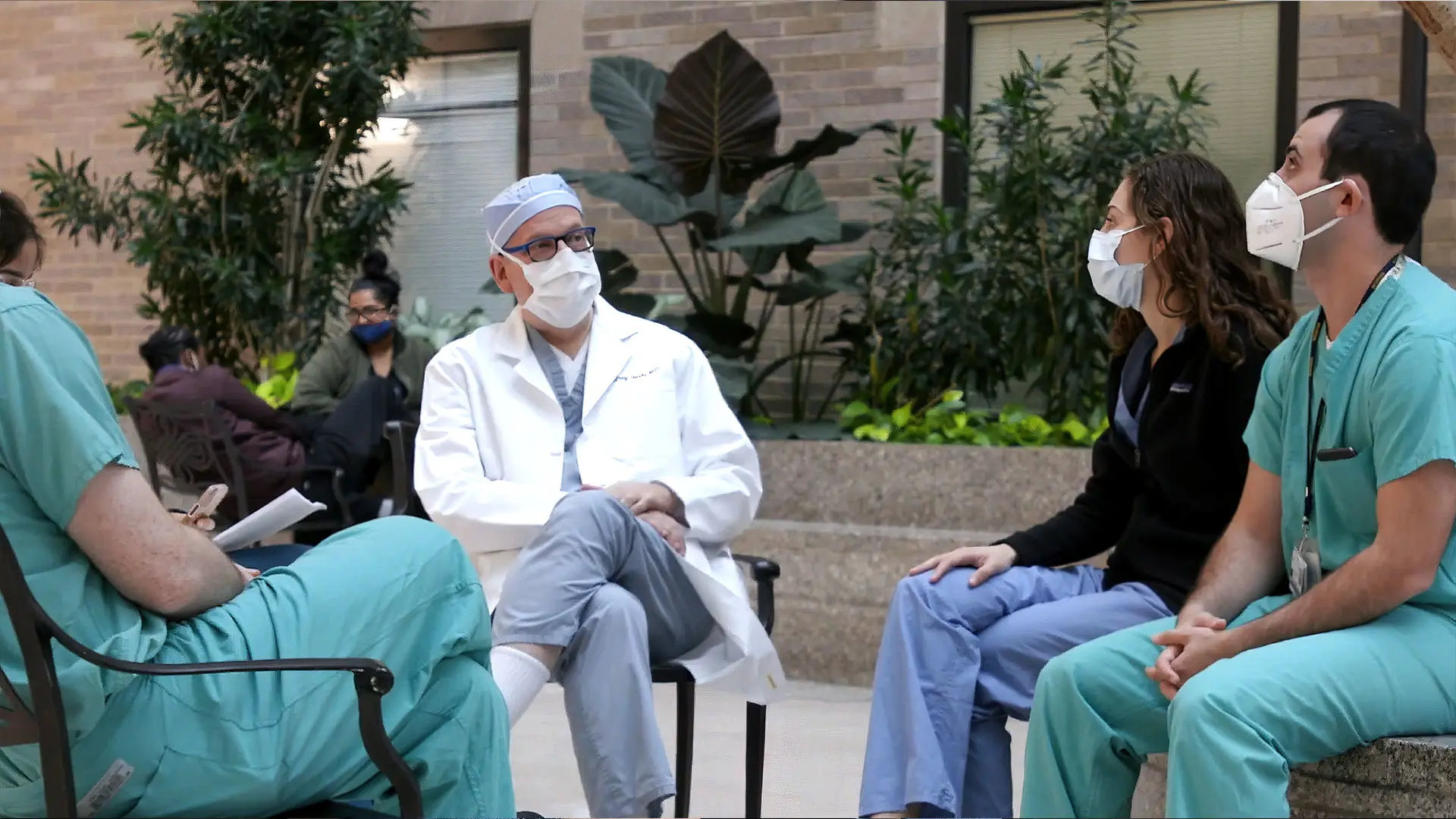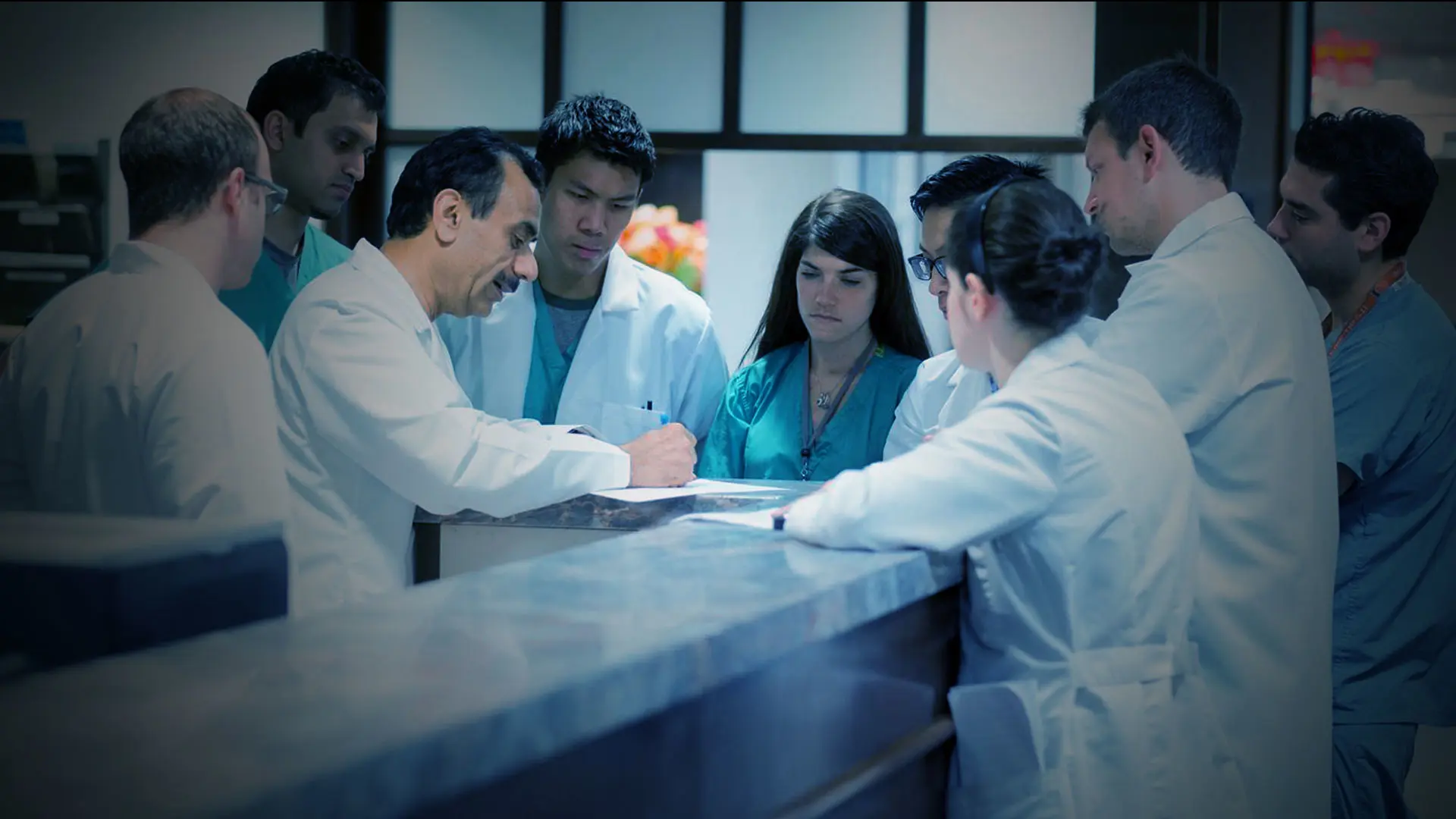The Urology Residency Program of the Milton and Carroll Petrie Department of Urology at the Icahn School of Medicine at Mount Sinai provides residents the opportunity to train in all aspects of the medical and surgical evaluation and treatment of genitourinary disease.
Residents are exposed to a broad range of subspecialties and learn from acknowledged experts, including robust surgical training.
Shirin Razdan, MD, a chief resident, saw coming to Mount Sinai for her urology residency as a chance to learn from “the Who’s Who of urology.” Dr. Razdan is one of 24 trainees enrolled in the Mount Sinai program, which recruits five residents per year through the American Urological Association Residency Match.

“We have an expert in almost every subspecialty of urology here,” says Shirin Razdan, MD. "There is something for everyone here, and you get to learn it from the best of the best, which is invaluable.”
She came to Mount Sinai uncertain which subspecialty she wanted to pursue and experienced several in the course of her residency training. Dr. Razdan found robotic surgery to be the right fit.
She has benefited from training with several outstanding urologists in the Department including Ketan K. Badani, MD, Vice Chair of Urology and Robotics Operations at Mount Sinai Health System, Director of Robotic Surgery at Mount Sinai West, and Director of the Comprehensive Kidney Cancer Program at Mount Sinai Health System; Mantu Gupta, MD, Professor of Urology, Chair of Urology at Mount Sinai West and Mount Sinai Morningside, and Director of Endourology and Stone Disease for the Mount Sinai Health System; and Robert Valenzuela, MD, Assistant Professor of Urology and Director of Penile Prosthesis Surgery.
“We have an expert in almost every subspecialty of urology here,” she says. For example, Mount Sinai has a robust gender-affirmation program with the Center for Transgender Medicine and Surgery. “There is something for everyone here, and you get to learn it from the best of the best, which is invaluable.”
Being part of a large hospital network and training in three of the hospitals ensures that residents see a large volume of patients and very complex cases that residents in a smaller program might not see.
The opportunity to do research with these experts is another advantage for those interested in an academic career. Dr. Razdan has done research on bladder and renal cancer surgical and functional outcomes as well as technical outcomes with penile prosthesis surgery.
“We have the ability and the resources available here at Mount Sinai for those residents who are more into research and who want to be very academically prolific,” she says. “If you have the interest and the time, the sky's the limit in terms of research productivity.”
Examples of Research
Chiefs (PGY5)
Harry Anastos, MD, has done research on urologic oncology and is now focusing on how to effectively and efficiently treat stones of the urinary tract.
Shivaram Cumarasamy, MD, has done research in urologic oncology, with an emphasis on outcomes research and creating nomograms.
Beth Edelblute, MD, MPH, has done research on technical considerations with ureteroscopy.
Shirin Razdan, MD, has done research on bladder and renal cancer surgical and functional outcomes as well as technical outcomes with penile prosthesis surgery.
Michaela Sljivich, MD, has done research on transgender care.
PGY4
Joshua Altschuler, MD, has done molecular biology research.
Joseph Baiocco, MD, has done pediatric urology research.
Benjamin Eilender, MD, has done research in urologic oncology and minimally invasive surgery.
Talia Stark, MD, has done quality improvement and systems research.
Ali Zahalka, MD, PhD, has done research on nerve regeneration and prostate cancer.
PGY3
Olamide Omidele, MD, has done research on kidney cancer with an emphasis on the role of robotic surgery.
Juan Serna, MD, has done research on endourologic surgeries with an emphasis on reducing opioid consumption.
Alexandra Siegal, MD, has done research on female sexual dysfunction as well as men's health and cosmetic penile surgery.
PGY2
Charles Nguyen, MD, has done research on renal function outcomes in radical cystectomy patients.
Nir Tomer, MD, has done research on ureteral stent encrustation with an emphasis on its pathophysiology and management.
Interns (PGY1)
Evan Garden has done research on technical advances in minimally invasive and robotic surgery as well as pathophysiology of ureteral stent encrustation.
Ralph Grauer has done research on the precision prostatectomy.
Linda Rahmani has done research on voiding dysfunction.
